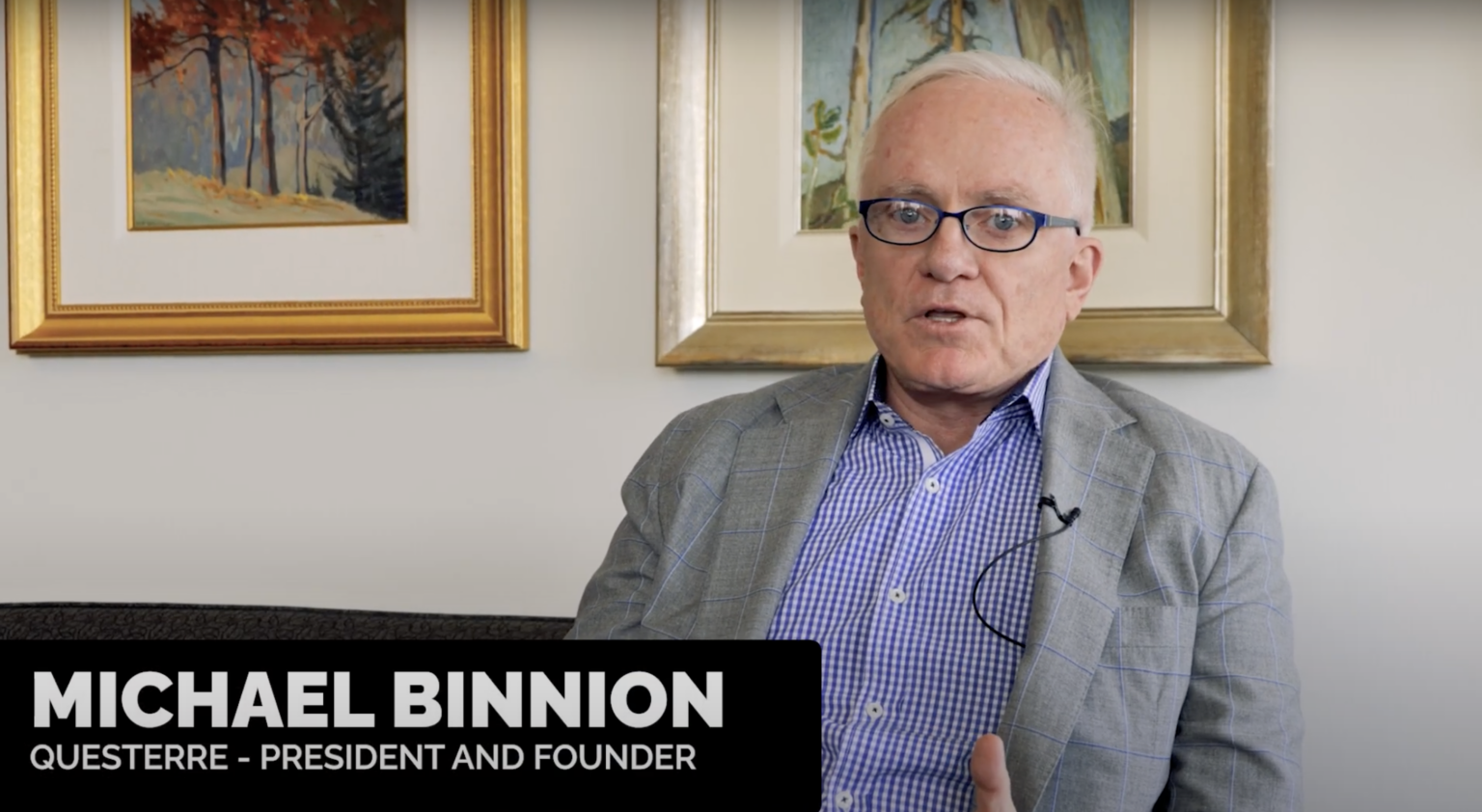Asked what impacts new leadership in Canada and the US may have on the fossil fuel sector, one fossil fuel company president at the Global Energy Show in Calgary said he hoped for a total reset on environmental policy.
Concerning the prospect of Trump and Poilievre both becoming their respective nations’ chief executives, Michael Binnion, president of Questerre Energy said, “What I hope that means for Canada is we take a complete reset on our energy and environmental policy and look for some of these alternatives that will be good for our economy, as opposed to what we’ve done, which has been terrible for our economy.”
Binnion’s statements were made last week in the context of a panel discussion entitled “Trump, Poilievre, or more of the same? What Could the Energy Sector in Canada and the United States look like in 2025?”
Most panelists refrained from speaking directly in favour of any particular electoral outcome, though as the conversation progressed it increasingly focused on the likelihood both men are elected in the near term.
While the United States is heading into a presidential election this fall, it is unclear exactly when Canada’s next federal election will take place, just as it is unclear whether former gameshow host Donald Trump will be able to run as a candidate.
Though panelists didn’t directly indicate whether they felt either Pierre Poilievre or Donald Trump would be beneficial towards the fossil fuel sector in Canada, they had some insight into what a Trump presidency could mean for the sector, and recommendations for what Canada might do.
Michael Binnion has participated in many similar panels alongside elected officials in Canada. In addition to being the president of a shale gas exploration company, he is also the founder of the Modern Miracle Network (MMN) and past president of the Canadian Taxpayers Federation (CTF). He also sits on the board of the Canada Strong and Free Network (CSFN), formerly the Manning Centre. Both the CSFN and the CTF are affiliated with the Atlas Network, a global association of libertarian think tanks that advocate against government intervention to solve the climate crisis. The board members of the Modern Miracle Network — whose logo appeared on slides used by Binnion during this panel appearance — are tied to the Canadian Association of Petroleum Producers (CAPP). Binnion and Questerre did not respond to requests for comment.
The MMN, CAPP, CSFN, and CTF have all promoted climate crisis denying views. Binnion has supported the Conservative leadership campaign of Maxime Bernier, who has questioned human-caused climate change. Binnion has also promoted the debunked conspiracy theories of Vivian Krause – such as the myth of foreign-funded environmental activists sabotaging the Canadian oil and gas industry – and was reportedly a noted participant in a 2019 secret meeting where Conservative politicians and oil company executives plotted the ouster of the governing Liberal Party of Canada.
Binnion was perhaps the most enthusiastic at the prospect of new leadership in Ottawa, with one of his slides listing Liberal party environment policies and comparing them with what he termed better alternatives.
Panel moderator Marg McCuaig-Boyd asked panelists what advice they would offer either Poilievre or Trump if both were elected and having a meeting. Binnion said he would advocate for Canada to offer to secure the Arctic in exchange for harmonizing energy, economic and environmental policies with those of the United States.
Binnion argued the resource sector actually represents 38 percent of the national economy — twice the generally accepted number of 19 percent of nominal GDP. He further stated that Canada has not adequately assessed the economic impacts of its environmental policies, that the governing Liberals have instituted far too many regulations, that Canadian environmental policies are not harmonized with either the United States or Europe, and that these “negligent decisions” have undermined Canadian productivity.
These statements are contradicted by an International Monetary Fund report issued just one day earlier, which indicated, among others, that the Canadian economy is resilient and well-managed, having averted a recession and with comparatively low debt and deficit rates. The same report favours the continued use of carbon pricing, as technology subsidies (in lieu of carbon pricing) would “imply substantially higher costs of achieving climate goals.”
Piggybacking off the same question, Greg Lyle, president of Innovative Research Group, said Canada should present itself to a new Trump presidency as a “tool you can use to achieve your global goals.” However, Lyle argued Canada’s contribution to a Trump presidency would take the form of precious minerals, which he argued would be useful to Trump given the latter’s fixation on wrestling power away from China.
“My advice to Trump is when you look around the world, just remember that your next door neighbor can be very helpful to you in winning the fights that you want to fight,” said Lyle.
In addition, Lyle argued that in contrast to Trump, Pierre Poilievre has a good chance of being a two-term prime minister, and for that reason Poilievre should focus on long-term issues.
According to Lyle, Poilievre should “focus on reality,” explaining that “the single best way that we can both afford the health care we want and help young people buy the homes that they are not even dreaming of anymore is to grow real incomes.” Lyle said the energy sector could help accomplish that.
Panelists said global demand for Canadian oil and gas exports was already high and likely to grow, even though this is contradicted by the latest research. A report from the International Energy Agency issued June 12, 2024, states slowing demand growth and increasing supply will likely result in an oil surplus. Similar reports indicate the same will be true for the global LNG market — too much supply and insufficient demand. Neither of these scenarios suggest robust growth or expansion of Canada’s oil and gas sector in the future.
Asked whether energy companies should be concerned about political change in either the United States or Canada, and what executives could do to mitigate uncertainty, Dr. Amrita Sen, founder and director of research at Energy Aspects, argued uncertainty already pervades nearly all aspects of the energy industry, regardless of who’s in power. Dr. Sen conceded that while a Trump presidency could be great for American oil and gas producers, a potential tariff or trade war with China instigated by Trump could be problematic in that it would have a globally destabilizing effect.
Picking up on this thread, Michael Binnion defined a reasonable person as one who adapts to the world around them, while an unreasonable person is one who insists that the world adapt to them. As such, Binnion encouraged oil companies to “be that reasonable person and adapt to the world that’s coming at them.”
The reality of climate change was not one which panelists felt necessary to adapt to. And as the conversation continued, Binnion switched gears and argued oil companies should be unreasonable, and “demand better circumstances for industry and Canadians.”
The panelists were in general agreement that the public at large was not engaged enough nor educated enough about energy and environmental policy, and that educating policy makers would be a better use of industry’s resources.
Asked by moderator McCuaig-Boyd what opportunities could come from a “Trump/Poilievre government” in the next year, Lyle said it was his highest hope for a Poilievre government would be that the approval processes for all types of projects be streamlined very quickly. Lyle said that this was not an unrealistic hope. Lyle continued, stating that for both Poilievre and Trump “there’s a fundamental reality that the energy business can solve both of their problems.”
Subscribe to our newsletter
Stay up to date with DeSmog news and alerts






